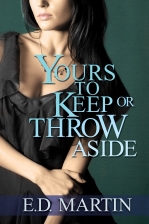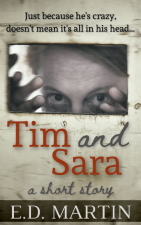My first novel, Yours to Keep or Throw Aside (previously released as The Lone Wolf), came out a couple years ago. After hearing about it, I’ve had several people tell me, “I’m not a big reader, but I’ve been thinking about writing a book too. I have a really great idea.” Which is great, but….
Before I go any further, watch this video.
It’s been said that for every overnight success, no one saw all their late nights and early mornings. Writing is no exception. It’s hard work, and it take a lot of time.
Here are the things I think are necessary to write a publishable book:
1. READ!!!!
I’ve been an avid reader since I was five (25+ years), and I read everything – fiction and nonfiction, children and adult, Nobel laureates and NY Times bestsellers, US and international, classics and modern, literary and fluff, genre – you name a category, and I’ve read something in it. I’ve taught high school literature and analyzed it in college lit classes. So, I think it’s fair to say I have a good idea of what’s out there, what works and what doesn’t, and why. But that doesn’t mean I’m qualified to write a book.
2. Develop your writing skills.
I’m currently a PhD student and I’ve worked as a professional researcher in several fields, meaning I’ve written a lot of analysis/explanatory papers, some of which I’ve won awards for. And I’ve taught writing at the high school level, so I think it’s fair to say I have well-developed writing skills. But that doesn’t mean I’m qualified to write a book.
I wrote one anyways, for NaNoWriMo ’09. And, it sucked. It sucked bad. I’d like to revisit it someday, but as for now it’ll stay locked away.
3. Get feedback from people you don’t know, who know what they’re talking about.
I kept writing, though. In October 2010, after eight months of writing, I finished the first draft of Yours to Keep or Throw Aside. Yay me! It was good, but I knew it wasn’t good enough. So I joined FOUR online writing groups (and I’ve since joined a local in-person writing group and a local writing association). Two were worthless and provided absolutely no feedback. One was filled with people who said it was great, and would I please tell them how great theirs were too so they could win a popularity contest? The fourth, Scribophile, ripped the novel apart. Not only were there story and character issues, but the writing was subpar – POV mistakes, filter words, telling instead of showing, too many tags and adverbs. And you know what? They were right.
4. Learn more about the craft of writing.
So I set out to learn about what I was doing wrong. I read books on writing. I follow a couple dozen blogs about writing. I read about what to do, and what not to do, and billions of examples and explanations of each. I talked to other writers. I’ve attended writing workshops.
I also wrote (and continue to write) short stories. While the depth is minuscule compared to a whole novel, it’s a great way to try out techniques, hone your voice, and finesse your understanding of the language.
5. REVISE, then Revise, then revise again. When you’re done with that, revise.
Armed with all that knowledge, I rewrote my novel. I got more feedback. I rewrote it again. I got more feedback. I nitpicked with edits for two years until finally I was ready to send it out into the big scary world.
6. Learn about the publishing industry.
While I’d been editing, I’d also been reading up on the publishing industry. I’d tested the waters with short stories, both with publishers and self-publishing. So when it came time to send queries, I knew who to send them to, what to say in them, and what to expect in reply.
Conclusion
When people tell me they want to write a book, but they don’t like reading, and they’ve never written anything other than stories in elementary school and short papers in high school, and they don’t know anything about their audience or the publishing industry, and can I put in a good word with my publisher for them? – the answer is NO.
It’s not that I’m trying to be mean. I think everyone has great (and not so great) ideas for books, and these people are no exception. But they need to put in the work, because writing a book involves much more than an idea.
Writers – what’s your experience with publishing? Any points you’d add to my list?





